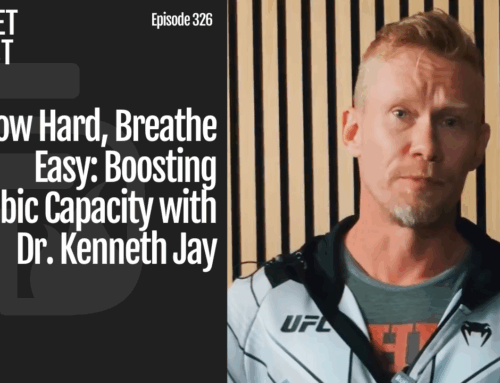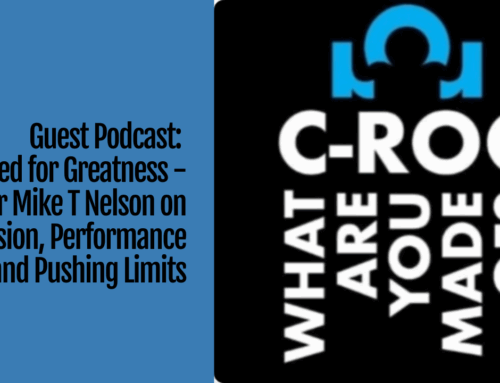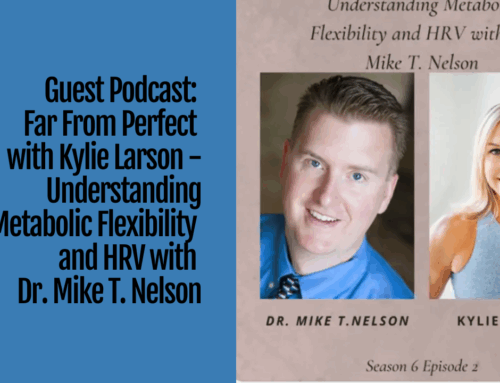In this guest interview, I had the chance to dive deep into some of my favorite topics — from why I created the Flexible Dieting Method to how early athletic development can impact everything from brain function to long-term movement quality. I shared a bit about my own background (spoiler: I wasn’t the naturally gifted athlete people assume), and how that drove me to solve my own performance puzzles and later, those of my clients.
We also touched on why rigid training systems often fall short, why giving clients and athletes options matters more than perfect plans, and how habit-based nutrition strategies can outperform complicated macro programs. There’s some fun stuff in here too— like whether video games help with hand-eye coordination, what the Russians got right (and wrong) about youth sports, and how kiteboarding in the Pacific Northwest keeps me grounded.
If you’re a coach, athlete, or just someone who wants to train for life—not just aesthetics—you’ll find a lot to dig into here.
Episode Chapters
-
3:00 – “Do you go to the gym to talk to people or do you avoid people?”
- 6:00 – If you aren’t on my email list, you should be
- 9:00 – “I was never an athlete like you” – my why for athletics. Ongoing process to solve his own issues.
- 16:30 – All kids should have some sort of level of athleticism. If they are behind there is something else wonky. There is something wrong with how his brain is mapping moving objects. I get so excited in this clip.
- 17:00 – How I feel about video games? Hand-eye coordination?
- 19:08 – The Russians show what sports are important to have kids specialize in their sport early. Gymnastics and figure skating. The bodyweight and size is so dependent that you have to max out at a specific small size. They didn’t care about holistic humans, they just cared about developing olympians.
- 21:25 – What got me into the “Flexible” Method. He got into it because the rigid stuff he had clients do, didn’t work well
- 22:00 – The Oreo Example
- 24:00 – Why flexibility in the real world is so important
- 26:20 – Bowling analogy for coaches
- 28:25 – Advice for coaches. Give people an option
- 29:40 – Flexible Dieting Cert. Counting macros or macro based programs vs. Habit stuff. For most people habit stuff works better. Sharing the research with clients doesn’t really get you anywhere.
- 32:25 – The 8 compliance in order: Protein, fasting, etc.
- 37:16 – Tell players what to do, vs what not to do
- 40:46 – Training for life. Most people want it to transfer to something else.
- 48:00 – Grip Strength
- 50:00 – PNW Kite boarding, wind surfing, Montana
Rock on!


Dr. Mike T Nelson
PhD, MSME, CISSN, CSCS Carrick Institute Adjunct Professor Dr. Mike T. Nelson has spent 18 years of his life learning how the human body works, specifically focusing on how to properly condition it to burn fat and become stronger, more flexible, and healthier. He’s has a PhD in Exercise Physiology, a BA in Natural Science, and an MS in Biomechanics. He’s an adjunct professor and a member of the American College of Sports Medicine. He’s been called in to share his techniques with top government agencies. The techniques he’s developed and the results Mike gets for his clients have been featured in international magazines, in scientific publications, and on websites across the globe.
- PhD in Exercise Physiology
- BA in Natural Science
- MS in Biomechanics
- Adjunct Professor in Human
- Performance for Carrick Institute for Functional Neurology
- Adjunct Professor and Member of American College of Sports Medicine
- Instructor at Broadview University
- Professional Nutritional
- Member of the American Society for Nutrition
- Professional Sports Nutrition
- Member of the International Society for Sports Nutrition
- Professional NSCA Member









Leave A Comment